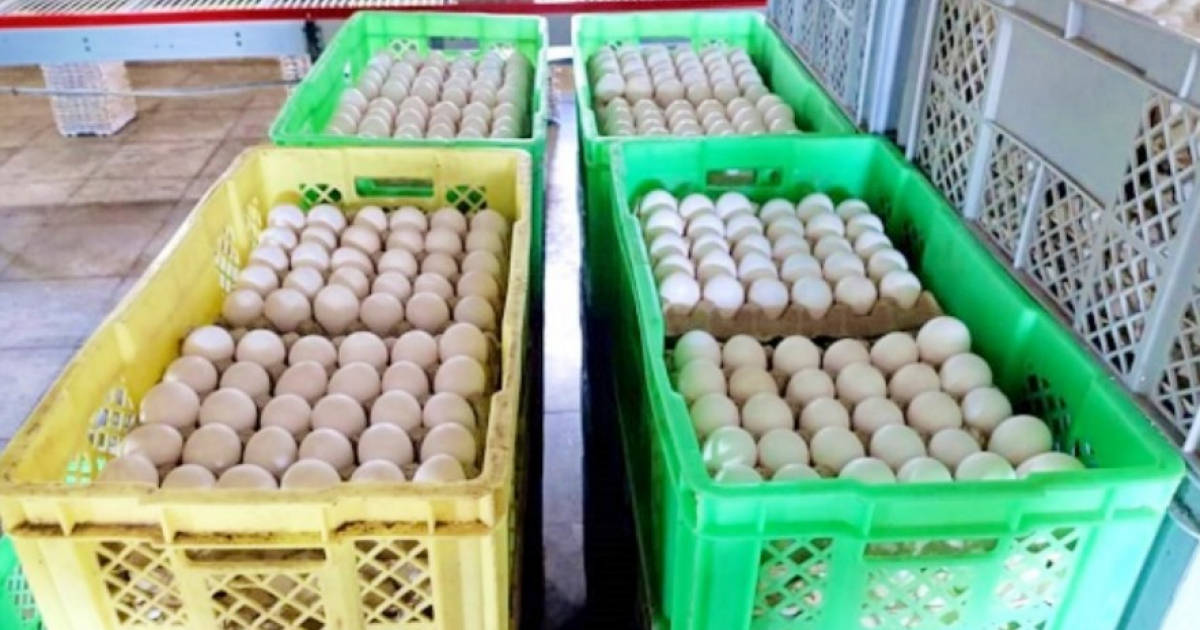
Related videos:
The Cuban police intercepted a truck transporting 42,900 cartons of eggs without legal documents while traveling on kilometer 141 of the National Highway, in the municipality of Jagüey Grande.
According to a report on Facebook from the official profile "Con Todos La Victoria," the operation took place on the afternoon of Monday, January 13. The vehicle, coming from Cienfuegos, was headed to Havana.
The driver, named Dayron Medina Hernández, and the representative of the merchandise, Mario Sergio García Villegas, claimed that the eggs were loaded in three farms from the southern province and were destined for a MIPYME in the capital.
However, it should be noted, they did not present any documentation that would validate the transaction or the final destination of the cargo. They only showed an invoice with crossed-out information and no signatures.
Subsequent investigations by the authorities in Cienfuegos revealed that the eggs were intended for social use, but were diverted.
The driver and the other occupant of the truck were taken to that province, where they will face criminal charges.
Frequently Asked Questions about the confiscation of egg cartons in Cuba
Why was the truck carrying egg cartons detained in Jagüey Grande?
The truck was detained for transporting 42,900 cartons of eggs without legal documentation, suggesting a possible diversion of resources intended for social use to the black market. Such incidents reflect the corruption and lack of control in food distribution in Cuba.
How does the egg shortage affect the Cuban population?
The shortage of eggs has led to a significant increase in their price, reaching up to 5,000 pesos per carton in the informal market. This situation exacerbates the economic crisis in Cuba, limiting access to this basic and essential product in the diets of Cuban families.
What measures is the Cuban government taking to combat the black market for eggs?
The Cuban government has intensified operations to confiscate illegally transported food and has imposed fines on vendors who violate regulations. These actions aim to regulate the black market, but have been criticized for not addressing the underlying causes of the lack of production and efficient distribution.
What is the public's perception of the government's actions against corruption?
The Cuban population often expresses frustration and discontent with government measures, considering them ineffective in addressing the structural problems that cause food shortages. Many citizens view these actions as superficial measures that do not adequately tackle corruption and inefficiency in the distribution system.
Filed under: